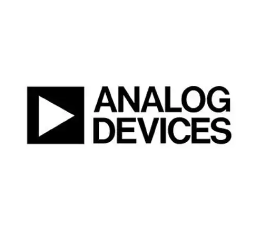**AD9850BRS: A Comprehensive Guide to the 125 MHz DDS Synthesizer**
The **AD9850BRS** is a highly integrated device representing a significant leap in frequency synthesis technology. As a complete **Direct Digital Synthesizer (DDS)** circuit, it combines a high-speed, high-performance DDS core with advanced digital and analog components on a single chip. Operating with a **125 MHz clock frequency**, it is engineered to generate highly stable, precise, and programmable analog output sine waves, making it a cornerstone in modern RF and digital communication design.
**Architecture and Core Functionality**
At the heart of the AD9850BRS lies its DDS core. The fundamental principle of DDS is to construct a waveform from a digital representation stored in memory. The chip features a **32-bit phase accumulator**, which is the key to its exceptional frequency resolution. This accumulator, combined with a 10-bit high-speed Digital-to-Analog Converter (DAC), allows for the precise generation of frequencies.
The frequency of the output signal is determined by a simple equation: **Fout = (ΔPhase Word * System Clock) / 2^32**. The 32-bit tuning word (or frequency control word) allows for a phenomenal frequency resolution of approximately **0.0291 Hz** with a 125 MHz reference clock. This means designers can tune the output frequency with incredible granularity, a feat difficult to achieve with traditional phase-locked loop (PLL) synthesizers.
**Key Features and Advantages**
* **High-Speed Performance:** With a 125 MHz internal clock, the AD9850BRS can generate output frequencies up to **40-50 MHz** (approximately 40% of the reference clock), covering a significant portion of the HF and low VHF bands.
* **Exceptional Agility:** The DDS architecture allows for **extremely fast frequency hopping and phase-continuous switching**. This is critical for applications like spread spectrum communications and agile frequency-hopping systems.
* **Digital Precision:** The **programmability via a serial or parallel interface** offers unparalleled control. The output frequency, phase, and amplitude can be adjusted digitally with high precision, enabling complex modulation schemes like FSK and PSK.
* **Integrated Design:** The inclusion of a high-performance DAC, comparators, and other support circuitry on a single CMOS chip simplifies board design, reduces component count, and enhances overall system reliability.

**Typical Applications**
The versatility of the AD9850BRS makes it suitable for a wide array of applications, including:
* **Precision Signal Generators and Function Generators**
* **Local Oscillators (LOs) in Communication Transceivers**
* **Frequency Hopping Spread Spectrum (FHSS) Systems**
* **Phase-Locked Loop (PLL) Replacement** in test and measurement equipment
* **Medical and industrial instrumentation** requiring clean, stable frequency sources
**Programming and Control**
The device is controlled by loading a 40-bit control register. This register consists of the 32-bit frequency tuning word (FTW), a 5-bit phase modulation word, and control bits for power-down and loading modes. The microcontroller interface is straightforward, supporting both **serial and parallel loading** mechanisms, providing flexibility for integration into various digital systems.
**ICGOOODFIND:** The AD9850BRS stands as a testament to the power of mixed-signal integration. It democratized access to high-performance frequency synthesis, moving beyond the limitations of analog techniques. Its combination of **high speed, digital precision, and integrated design** solidified its status as a classic and influential IC in the fields of amateur radio, commercial communications, and electronic instrumentation. While newer devices offer higher speeds and better spectral purity, the AD9850BRS remains a foundational component for understanding and implementing DDS technology.
**Keywords:** Direct Digital Synthesizer (DDS), Frequency Synthesis, 125 MHz Clock, Programmable Frequency, Signal Generation
